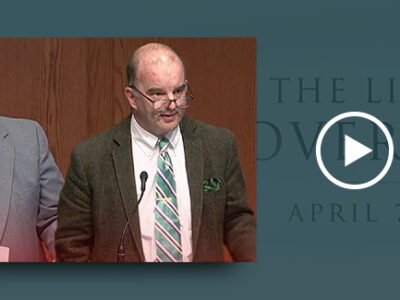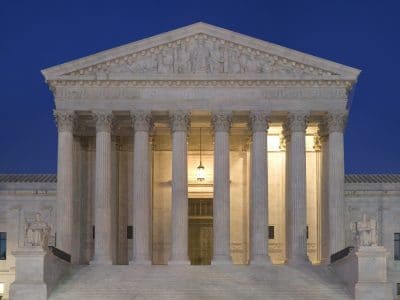The Supreme Court’s recent decision banning partial-birth abortion has renewed public interest in abortion politics and policy. Despite the infrequency of late-term abortions, the ban is significant because it strikes at one rationale for the general availability of abortion: the potential negative mental-health consequences for women who carry a child to term. Many late-terms abortions are performed for such reasons. For instance, in 1999, mental-health concerns were cited by the abortion provider in all 182 partial-birth procedures in Kansas.
Thus, both pro-choice and pro-life camps are gearing up for more debate over the mental-health consequences of abortion. In a fight, political or otherwise, it is good to have influential allies. In the abortion debate, pro-choice advocates historically have counted on the support of the powerful American Psychological Association.
Abortion and the APA have a relationship that predates Roe v. Wade. Rewinding to 1969, the APA became an early player in the public debate with the following resolution:
… WHEREAS, termination of unwanted pregnancies is clearly a mental health and child welfare issue, and a legitimate concern of APA; be it resolved, that termination of pregnancy be considered a civil right of the pregnant woman, to be handled as other medical and surgical procedures in consultation with her physician …
Fast forward to 2007; the APA recently convened a task force called the Task Force on Mental Health and Abortion. According to APA spokesperson, Rhea Farberman, the committee will conduct an updated review of the published scientific literature on the potential impact of abortion on women’s mental health. The committee has met once and is slated to report its findings in 2008.
Does the appointment of this committee signal a possible change in APA policy toward abortion? Very likely, the answer is no.
Periodically, pro-life psychologists have urged the APA to examine claims that abortion may lead to negative mental health consequences for some women. In 1989, the APA convened a task force to review research on the topic and found little risk of psychological harm. However, just over a year ago, a New Zealand based pro-choice researcher, David Fergusson, released a study that re-ignited the debate over the mental-health effects of abortion.
In a well-designed longitudinal study, Dr. Fergusson found abortion was associated with depression and other negative mental-health outcomes. Dr. Fergusson’s team criticized the APA’s position statement on abortion consequences which stated,
Well-designed studies of psychological responses following abortion have consistently shown that risk of psychological harm is low. Some women experience psychological dysfunction following abortion, but post-abortion rates of distress and dysfunction are lower than pre-abortion rates.
Professor Fergusson believed the APA position ignored results of studies such as his which found contradictory results.
For a 2006 article, I interviewed Dr. Nancy Russo, long-time APA luminary and defender of abortion rights, about Dr. Fergusson’s criticism of the APA position. Dr. Russo first asserted that the evidence on mental-health outcomes was of clinical interest but had no bearing on abortion as a civil right. In other words, no matter what the consequences, abortion should be legal.
In addition, she said the APA statement was accurate but that the APA’s Internet page on the subject should be updated. Within days, that website was removed and is still not available.
So it is not surprising that the APA appointed a task force. However, the circumstances surrounding it have raised questions.
One APA psychologist who is concerned about the objectivity of the task force is Dr. Rachel MacNair, author of Perpetration-Induced Traumatic Stress: The psychological consequences of killing. Dr. MacNair says she is a “pro-life feminist” who “sees all violence as connected and wrong, with abortion being one kind of violence.”
Why is Dr. MacNair concerned? She said, “Although the APA included two experts on the trauma of domestic violence and an expert on methodology, three members have clearly stated ideological commitments to the ‘pro-choice’ perspective. The voice of the woman who believes that she has problems caused by her abortion is absent.”
Speaking about the APA’s current stance, Dr. MacNair says, “Women who wish their therapists would take their abortions seriously as a possible cause of traumatization have faced being told that the APA has decided otherwise.”
Dr. MacNair believes the committee’s credibility would have been strengthened by including members with opposing perspectives. She observes, “Only if the report comes out with conclusions opposite to what one would expect with the ideological commitment of half of its members would it have credibility; if it comes out as would be predicted, the absence of balance on the task force will be a problem for its scientific credibility.”
In fairness, Dr. MacNair doesn’t assume that the APA will disregard all research that associates some type of harm with abortion. She explains, “I have been told that the report of the task force will be going through a vigorous review process before being accepted. If that happens, then perhaps the voices that are absent now can still be heard.”
No matter what results are reported, Dr. MacNair raises provocative questions about the role of political philosophy in the construction of professional policies. The historical position of the APA on abortion, the method of the current task force’s formation, and the ideological leanings of half of the members, all create legitimate concerns about the ability of the APA to objectively review the evidence on abortion and mental health. On this committee, or indeed on any task force regarding issues of social controversy, scholars with contrasting professional, religious, and cultural perspectives should be appointed. Only in this way will the APA’s statements on socially divisive issues be taken seriously across the political spectrum.




